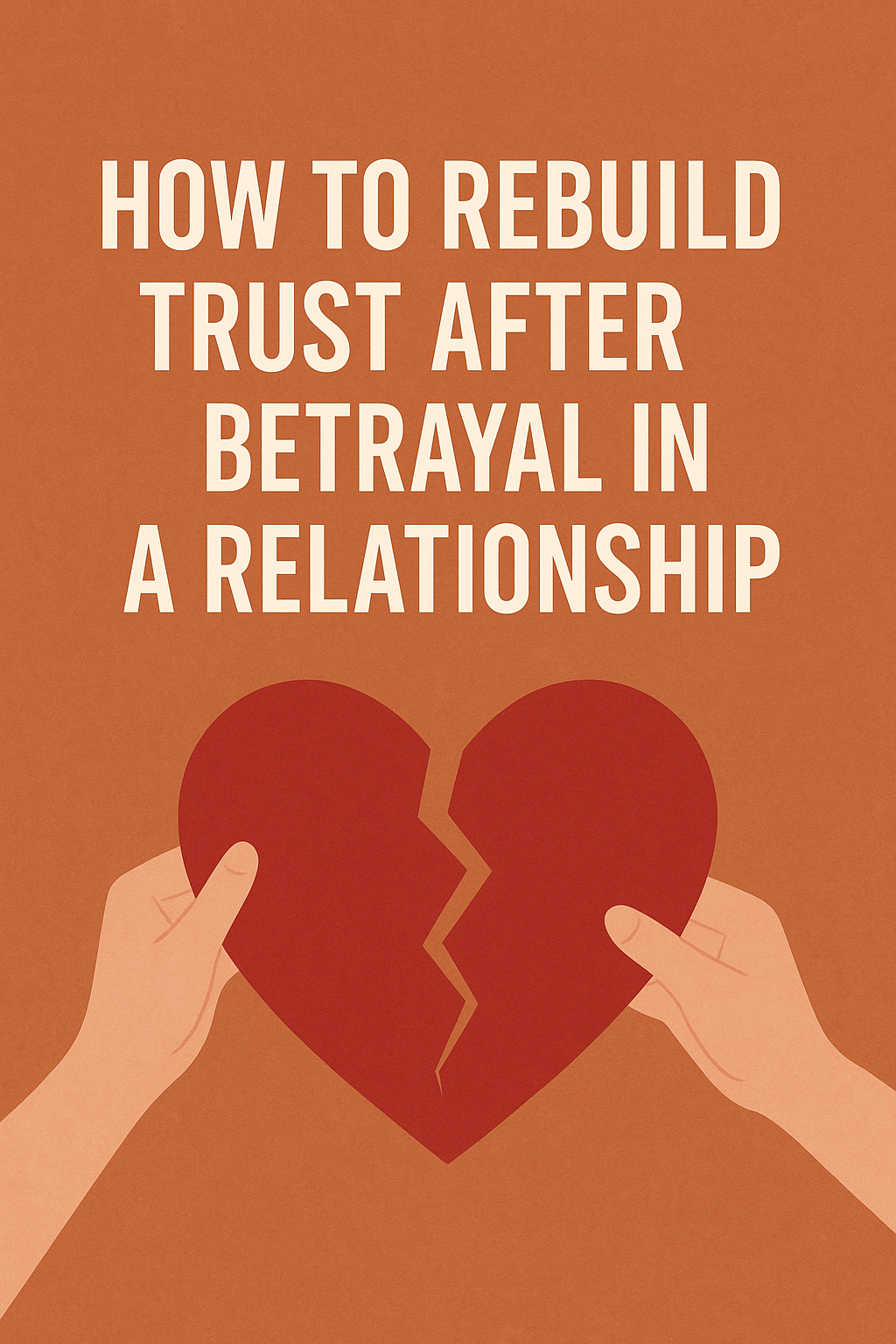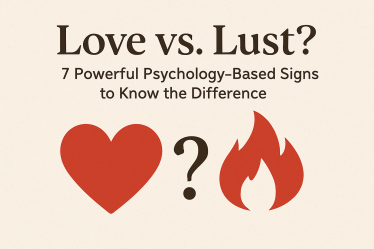
Trust is the foundation of any healthy relationship—and once it’s broken, it can feel impossible to rebuild. Whether the betrayal came from infidelity, deception, or a broken promise, the pain is real. But if both people are willing to do the work, healing and reconnection can happen.
In this guide, we’ll walk through how to rebuild trust after betrayal. You’ll learn the key steps to recovery, what to expect emotionally, and how to tell whether your relationship is truly worth saving.
Understanding Trust and Betrayal in Relationships
Trust in a relationship means more than just believing someone won’t cheat—it’s about feeling emotionally safe. It’s knowing your partner has your back, keeps their word, and respects your boundaries.
Betrayal can take many forms:
- Physical or emotional infidelity
- Hiding important truths
- Repeated dishonesty or secrecy
- Breaking major promises
The damage isn’t just about the action—it’s about the shock to the emotional bond. As Dr. John Gottman, a leading relationship researcher, notes: “Trust is built in very small moments and broken in a heartbeat.”
The Immediate Aftermath of Betrayal
The initial reaction to betrayal is often chaos: anger, disbelief, sadness, confusion. These feelings are normal. Don’t rush to “fix” the situation right away.
What you should do immediately:
- Take space if needed to process your emotions
- Avoid retaliating or saying something you’ll regret
- Seek support from a trusted friend or therapist
- Start journaling your thoughts to gain clarity
What NOT to do:
- Don’t force conversations before you’re ready
- Don’t pretend everything’s okay to avoid confrontation
- Don’t demand instant forgiveness or resolution
Should You Rebuild Trust? Asking the Right Questions
Before jumping into repair mode, ask: Is this relationship worth saving?
Ask yourself:
- Is this the first time trust has been broken, or is it a pattern?
- Is my partner taking responsibility, or justifying their actions?
- Am I staying out of fear, or real love?
- Do I believe change is possible?
Green flags for rebuilding:
- Genuine remorse and transparency
- Willingness from both partners to do the emotional work
- A history of a strong, healthy connection
If these aren’t present, it might be time to consider whether this relationship is the right space for you to heal.
Steps to Rebuilding Trust After Betrayal
Rebuilding isn’t about perfection—it’s about consistent effort.
1. Communicate Openly and Honestly
Both partners must be willing to talk—and listen. The one who betrayed must be open to tough questions and give truthful, complete answers.
2. Take Full Responsibility
No minimizing. No blaming others. Owning the betrayal is the first step toward restoring credibility.
3. Show Consistency and Reliability
Trust is rebuilt through action, not words. This means:
- Keeping promises, even small ones
- Being where you say you’ll be
- Responding with respect and patience
4. Be Patient with the Process
Trust doesn’t come back overnight. Expect setbacks and emotional waves. The betrayed partner may need to ask the same question more than once—that’s part of the healing.
Checklist: Daily Habits That Rebuild Trust
- Check in emotionally with your partner
- Be transparent with your schedule or plans
- Express appreciation and reassurance
- Stick to your word every day, no exceptions
Rebuilding Together: What the Betrayed Partner Needs
Rebuilding trust isn’t just about proving loyalty—it’s about creating emotional safety again.
What the hurt partner needs most:
- Validation: “I understand why you’re hurt” goes a long way
- Reassurance: Not just that it won’t happen again, but that you understand why it hurt
- Consistency: Trust grows with predictability
- Support: Encourage therapy, healing, and emotional processing
Couples counseling can help guide this process. According to the American Association for Marriage and Family Therapy, over 70% of couples who go through therapy report improved communication and trust.
Rebuilding Yourself After Betrayal
Even if you stay in the relationship, you need to heal individually. Betrayal often hits self-worth the hardest.
Ways to support your healing:
- Reconnect with activities and people that bring you peace
- Practice mindfulness to manage emotional triggers
- Redefine your boundaries—what will and won’t be acceptable going forward
- Seek therapy to process grief, anger, or self-doubt
Self-Care Actions That Support Healing:
- Daily journaling or affirmations
- Exercise or movement to manage stress
- Avoid contact with the betrayer during no-contact phases (if applicable)
- Set digital boundaries (e.g. time off social media)
How to Know If Trust Has Been Restored
You won’t wake up one day and just “feel” trust is back—it’s something you’ll see in your everyday dynamic.
Signs trust is returning:
- Less anxiety and suspicion during normal interactions
- Emotional vulnerability is welcomed again
- Fewer triggered reactions during disagreements
- You’re no longer constantly “testing” your partner
Case study example:
A couple in counseling after an affair shared that after 10 months of consistent therapy and open communication, they were able to enjoy each other again without walking on eggshells. What helped? Radical honesty, clear boundaries, and letting go of the urge to control each other’s healing timeline.
Conclusion
Rebuilding trust after betrayal is hard. It takes time, effort, and emotional risk. But it’s possible—if both partners are committed to honesty, empathy, and growth.
You don’t have to forget what happened—but you can choose to rebuild something stronger. And if you ultimately decide the relationship isn’t right for you, walking away with your integrity intact is also a powerful form of healing.
Whatever path you choose, trust can be rebuilt—starting with yourself.



